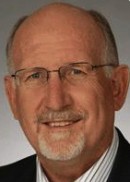Guest Column: Harass Muslims? Torch mosques? What would Jesus do?
 (Orlando Sentinel, September 23, 2016)
(Orlando Sentinel, September 23, 2016)
By James Coffin
Scripture assures us Jesus would not burn mosques and harass Muslims.
Two wrongs don’t make a right. At least, that’s what my parents told me. They said it repeatedly and emphatically. And their words have stuck with me.
Neither were my parents moved by such arguments as: “But he hit me first!”
And it wasn’t because of indifference toward the guilt of the initial aggressor. They simply believed there was a right way and a wrong way to respond to provocation. And it didn’t involve taking vengeance into one’s own hands.
That role was reserved for an appropriate third party. For authority figures. For those vested with certain powers and prerogatives. For those in a position to render a more objective judgment and prescribe a more reasoned remedial path.
But not everyone had my parents as their parents. So not everyone has had such concepts drummed into their heads — least of all, it would seem, those who have attacked either people or property related to the Fort Pierce Islamic Center.
The apostle Paul says: “Do not repay anyone evil for evil. … If it is possible, as far as it depends on you, live at peace with everyone. Do not take revenge…” (Romans 12: 17-19).
And I Peter 3:9 contains a similar admonition: “Do not repay evil with evil or insult with insult. On the contrary, repay evil with blessing….”
The Hebrew Scriptures, written much earlier, provide additional insights. Ezekiel 18:20 highlights a crucial consideration concerning justice: “The child will not share the guilt of the parent, nor will the parent share the guilt of the child. The righteousness of the righteous will be credited to them, and the wickedness of the wicked will be charged against them.”
In other words, familial connection, wearing the same label or mere proximity is not a justifiable basis for assigning guilt and doling out punishment. The fact that a ruthless killer had on occasion worshipped in a certain building doesn’t condemn everyone who happens to also have walked through that building’s doors.
The simple fact is, neither the Jewish roots of the accused arsonist nor his Christian roots provide any justification for such an act. In fact, such behavior, and the spirit behind it, is roundly condemned.
Indeed, in Proverbs 25: 21, 22, we read: “If your enemies are hungry, give them food to eat, if thirsty, give something to drink; For live coals you will heap on their heads….”
No, this passage doesn’t give permission for us to literally light our enemies’ heads on fire. Rather, it’s a figure of speech to remind us that kindness, particularly in situations where the aggrieved might be expected to retaliate, often makes a mind-boggling impact on the surprised recipients of such unexpected graciousness.
The foregoing Scriptures describe a radical, other-worldly form of love that we as spiritual people should grant to our enemies. And Muslims aren’t even our enemies.
Muslims (particularly in America) are caught in a terrible dilemma. Extremists, claiming to represent true Islam and waving the Muslim banner, have murdered and maimed hundreds of non-Muslims. But these extremists have inflicted even greater casualties on Muslims.
That fact notwithstanding, many, like Schreiber, boldly declare that all Muslims are extremists. Thus, arsonists and harassers feel justified in their assaults.
But they aren’t. Because two wrongs never make a right.
James Coffin is executive director of the Interfaith Council of Central Florida.
